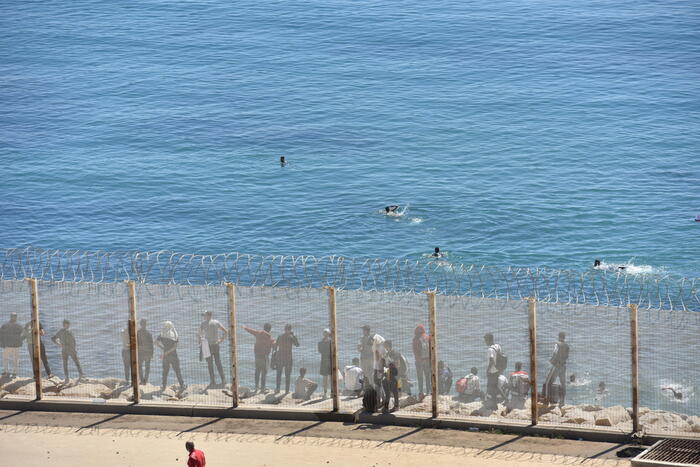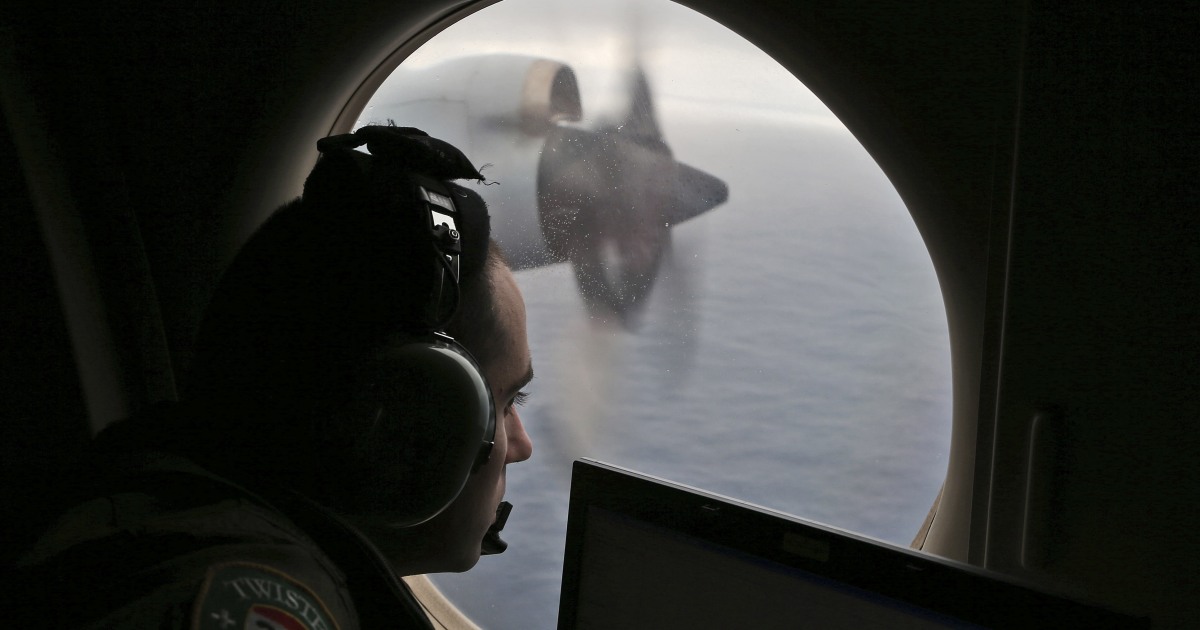Enlarge image
An officer of the Guardia Civil pulls out of the water a woman who swam from Morocco to Ceuta while fleeing to Europe
Photo: Javier Fergo / dpa
Never before have so many people fled to Ceuta at once, reports the Spanish newspaper »El País«, it is like a »highway on the sea«: 6,000 migrants have already arrived from Morocco in Spain's North African exclave and are still trying to find out Indications from Madrid many people to achieve this goal.
The local authorities were apparently surprised by the situation and initially could not do more than save people from drowning.
In the meantime, the first of the refugees have already been deported.
The dramatic events at a glance:
What happened?
Since Monday, thousands of men and women, including many minors, have reached Ceuta under dramatic circumstances.
The Spanish exclave is located on the north-eastern tip of Morocco, most people swam through the Mediterranean Sea - some only with a swim ring to help them - while others came in rubber dinghies.
In some places the migrants were able to walk at low tide, others crossed the border on land.
According to the authorities, a person drowned on the way.
Where do the refugees come from?
Most of the refugees are said to be Moroccans.
The people had set out from beaches south of Ceuta, said a Spanish authority spokesman.
Many Moroccans have lost their jobs and their income since the country closed the border with Ceuta and the other Spanish North Africa exclave Melilla in March 2020 because of the corona pandemic.
Since then, people have repeatedly demonstrated for the opening of the border.
What is happening to them now?
Around 300 of the refugees who arrived in Ceuta have already been deported, reports the daily newspaper El Faro.
According to the authorities, the adult migrants will be taken to a football stadium to be sent back to Morocco.
The minors would be housed in an industrial building.
The Spanish Interior Ministry announced on Monday that both countries had recently agreed that anyone who illegally arrives in Ceuta by sea will be deported to Morocco.
Why isn't Morocco stopping the refugees?
Morocco let people pass, according to Spanish media, because the government is angry that Spain allowed medical treatment for the head of the independence movement Polisario for Western Sahara, Brahim Ghali, in a hospital in the Spanish city of Logroño.
The Moroccan government has not yet issued an official statement.
The treatment of the Polisario boss is explosive in view of the tensions in the Western Sahara conflict between Morocco and some EU countries.
Western Sahara is located on the North African Atlantic coast and was a Spanish colony until 1975.
Morocco controls large parts of the sparsely populated area on its southern border.
The independence movement Polisario seeks independence for Western Sahara.
Morocco only wants to grant the region autonomy.
In December, US President Donald Trump, who had already been voted out but was still in office, recognized Morocco's sovereignty over Western Sahara.
Since then, tensions have grown between Morocco and European countries that criticized Trump's decision.
At the beginning of May, the Moroccan government called back its ambassador from Berlin.
Read an analysis here.
What's next now?
According to government sources, Spain is also using the military to secure the border from Ceuta.
A representative from the Spanish Interior Ministry said soldiers had been transferred to Ceuta and were patrolling the border with the police.
How many soldiers are involved remained unclear.
Why is Ceuta even Spanish?
Ceuta and the other Spanish exclave Melilla have the only land border between the European Union and Africa.
The Moors dominated the life and culture of Ceuta for a good seven centuries.
It was not until 1415 that 200 ships of the Portuguese Armada succeeded in displacing the Moors.
The exclave was then subject to the unified Portuguese-Spanish royal family and fell to Spain through a referendum in 1640 (read more here).
as / Reuters / dpa / AFP






/cloudfront-eu-central-1.images.arcpublishing.com/prisa/YERIHG6N2P66AEZ5Z6BCT6WSYE.jpg)


